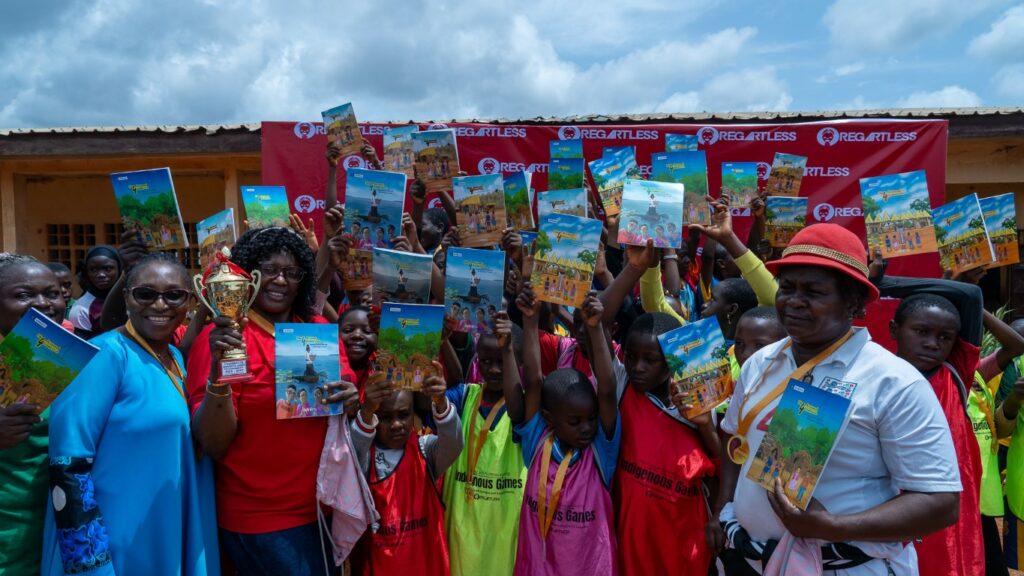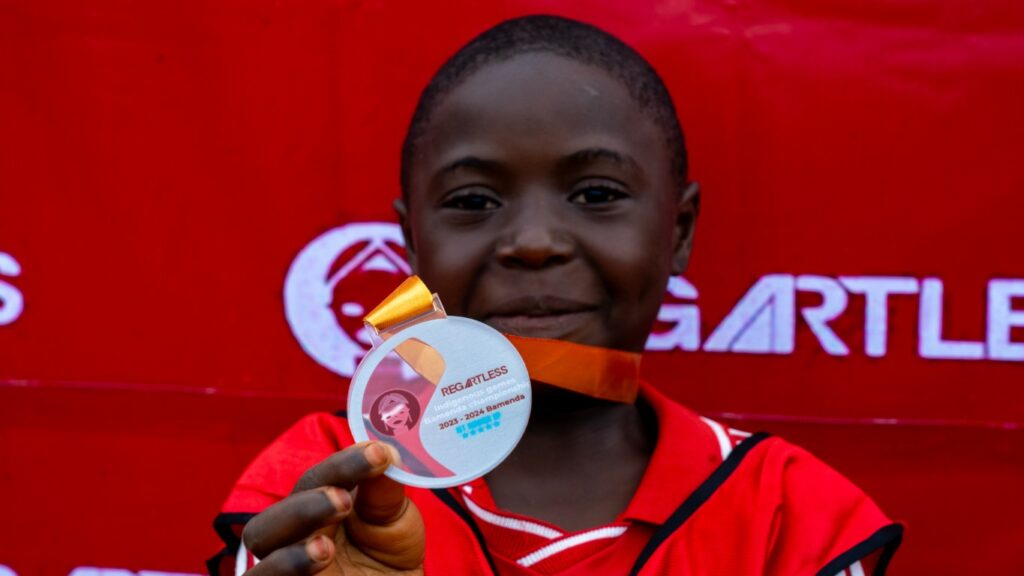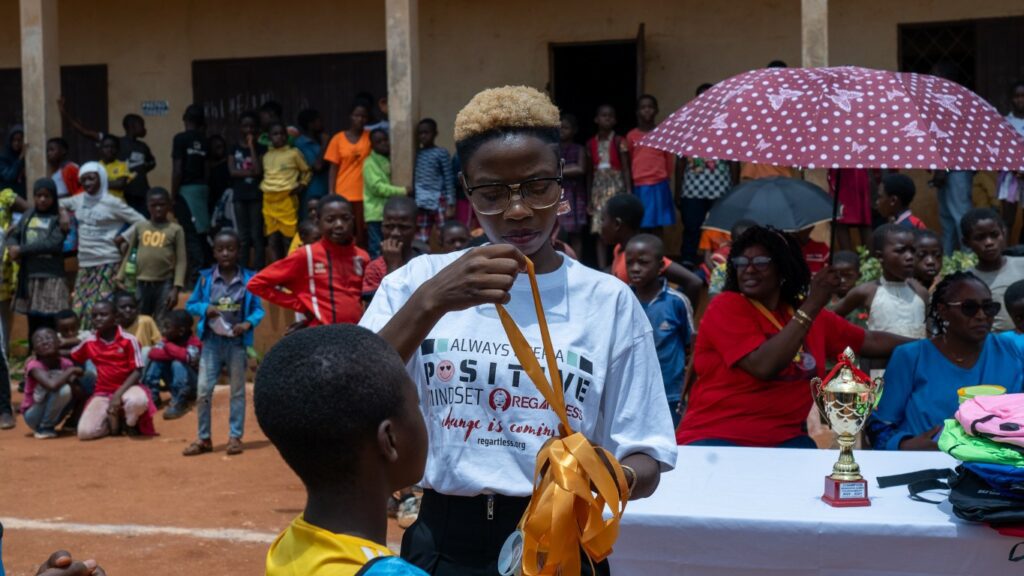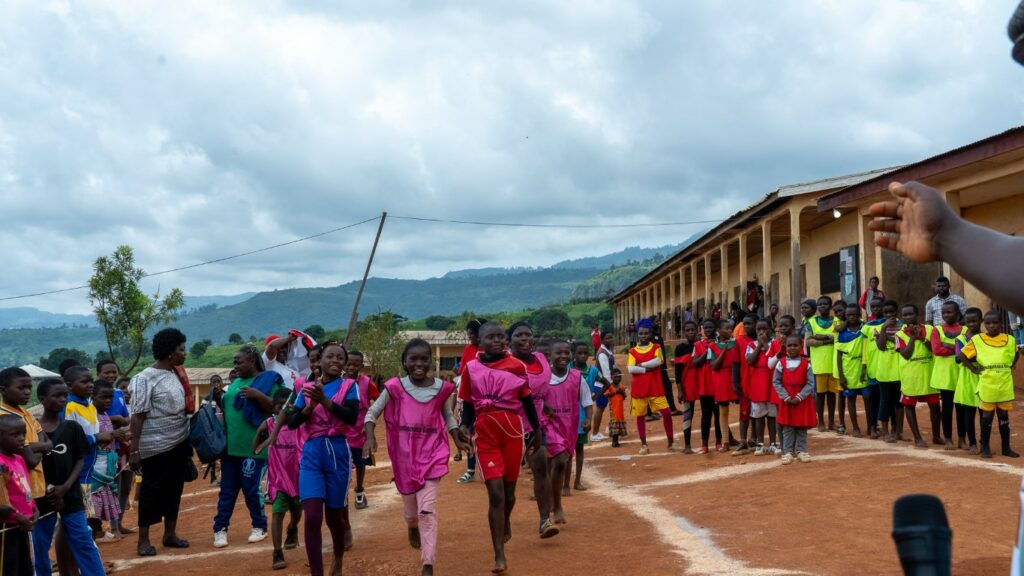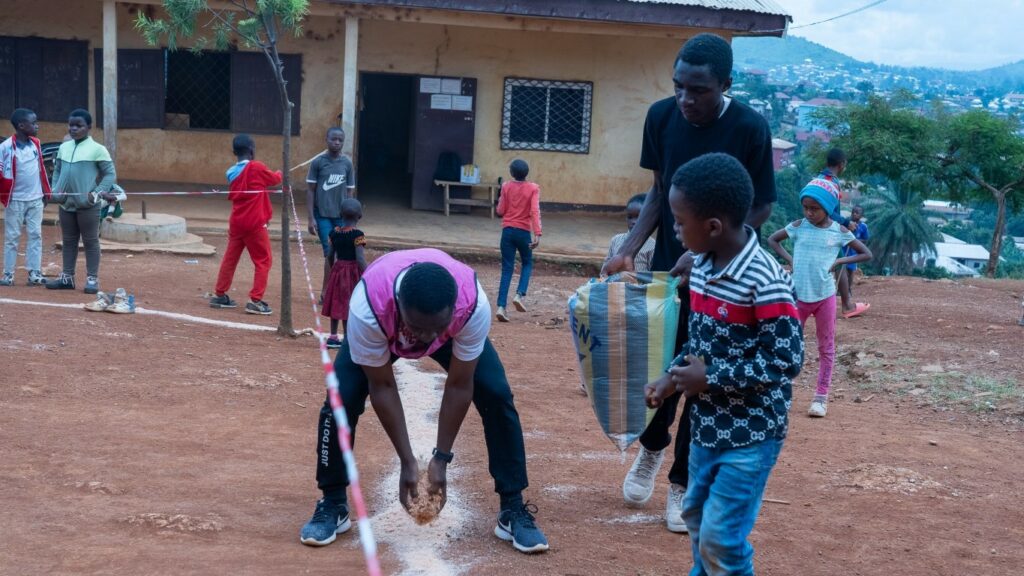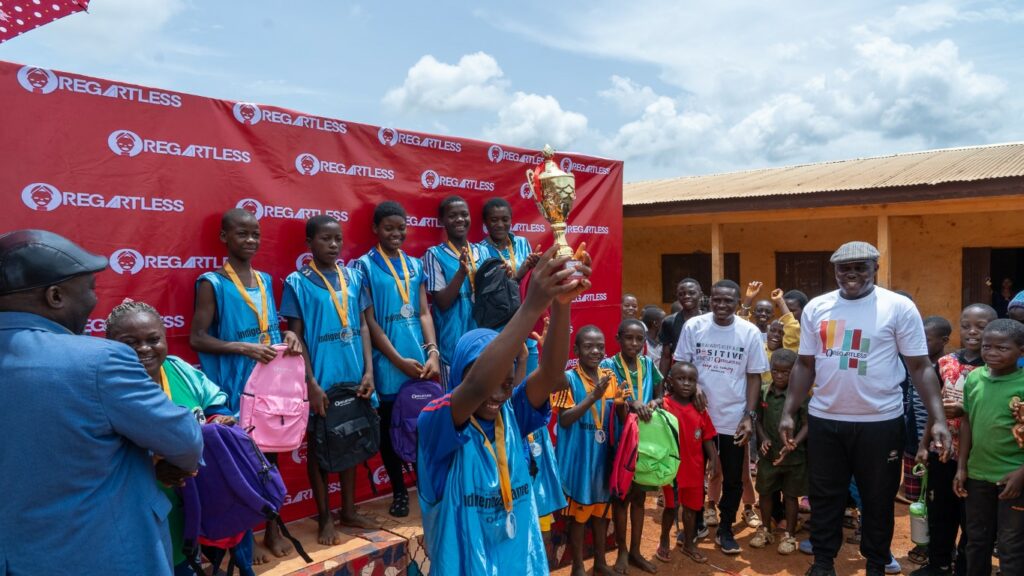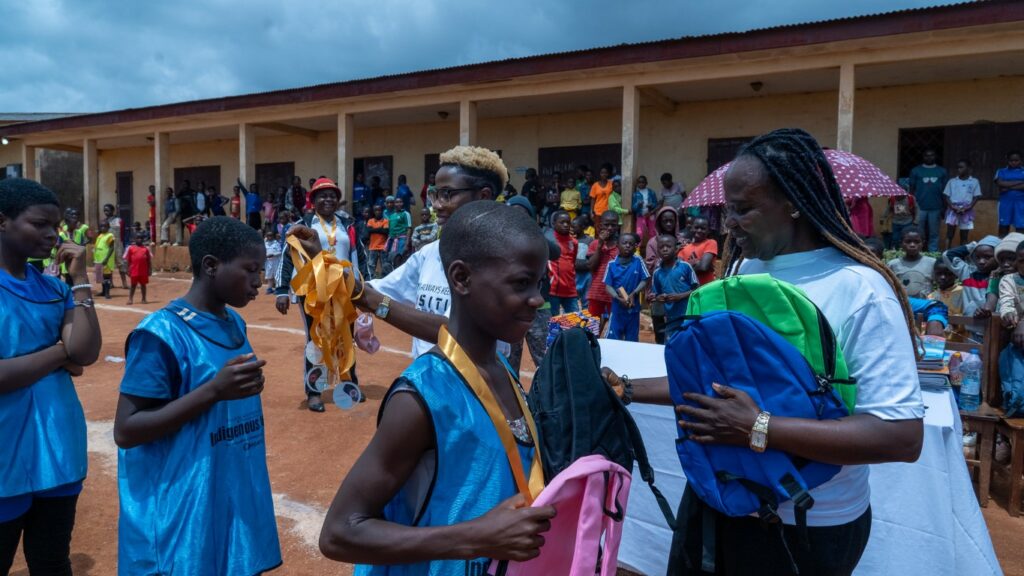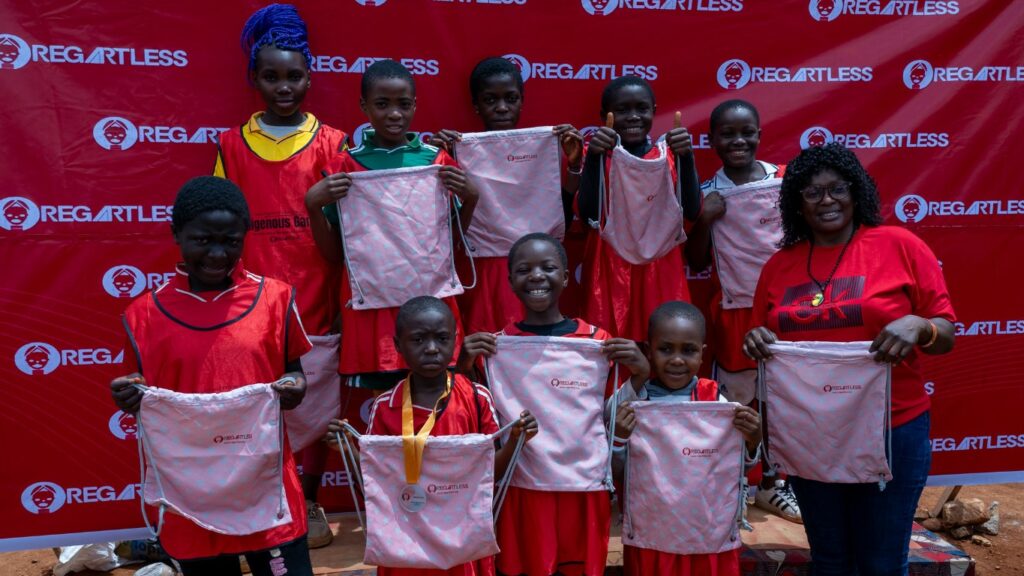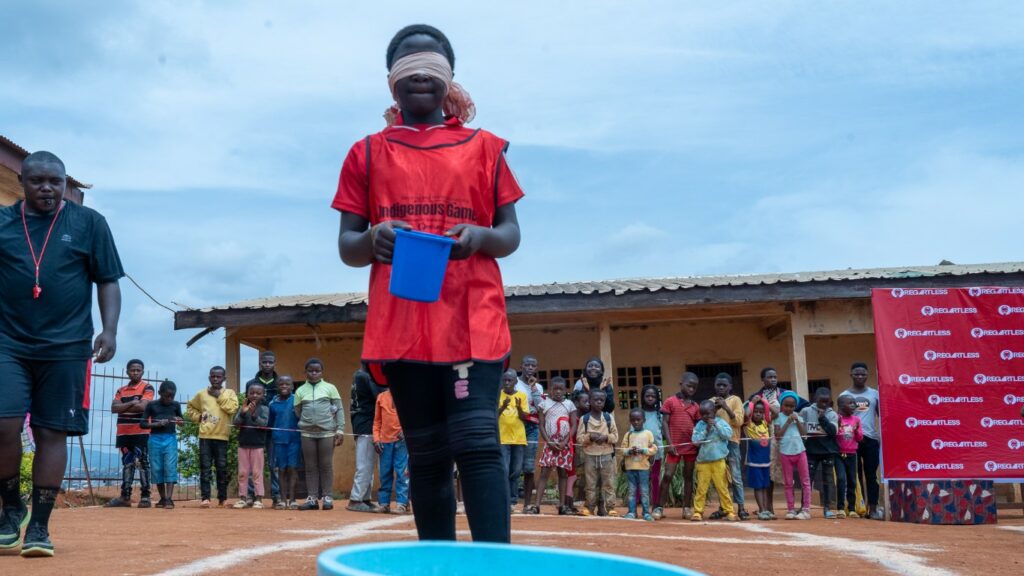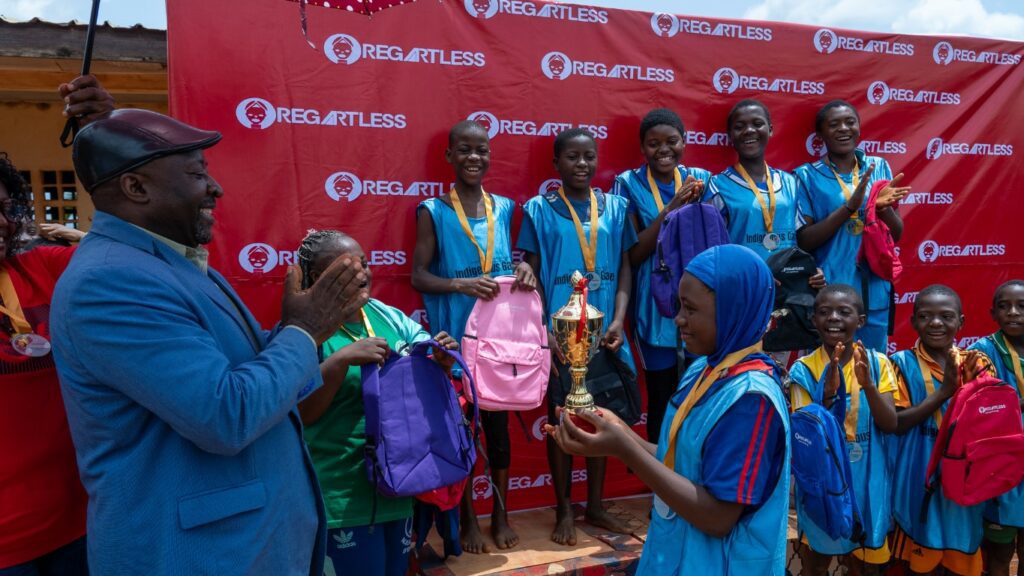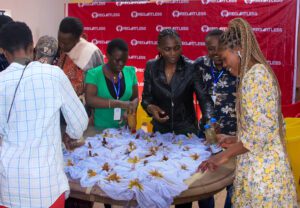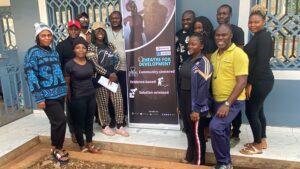It’s 7:30 a.m. in Bamenda, in the Northwestern region of Cameroon, and the sunrise is at its best. There is a rush for primary education learners in Bamenda I to get to the school premises on time even though lessons are over for the academic year and learners are only waiting for the results. The smiles and excitement on their faces show something unusual but beautiful about to happen in school. Neatly dressed in assorted wears with ready-to-go shoes, they are basking in the glory of the sunrise, impatiently waiting for 9 am.
It is 8:15. A group of 5 familiar strangers make their way to the school carrying backdrops, playing beeps, trophies, medals, books and bags in bulk, and other indigenous sports equipment. The learners and staff are somehow familiar with these people: REGARTLESS staff, who have just arrived to prepare for the Indigenous game competition for the 2023 – 2024 academic year.
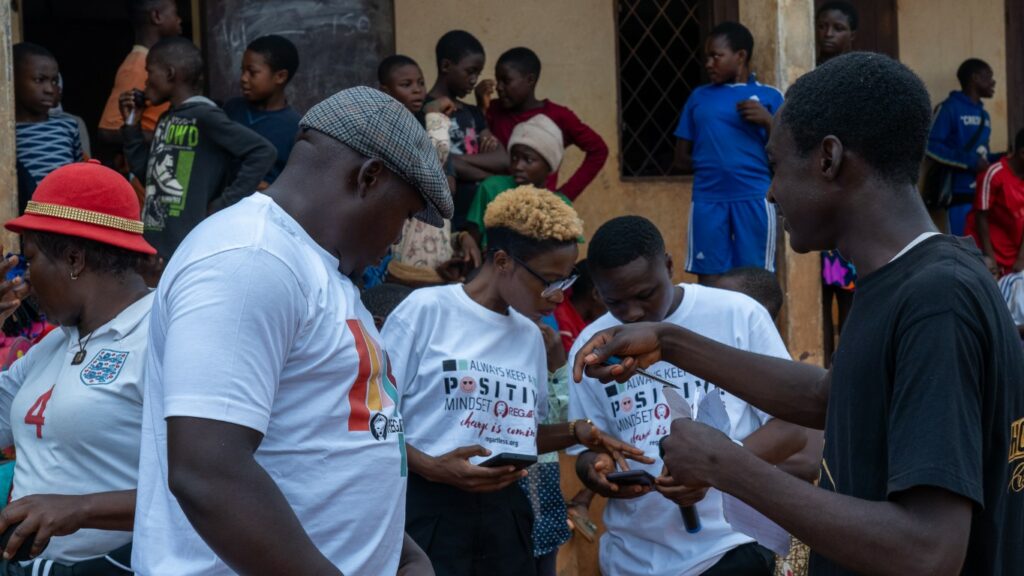
Before this play session, these great men and women had been to this school to train learners on the dynamics, rules, regulations, and moral and ethical standards of Indigenous games, a project that REGARTLESS, formerly Sysy House of Fame, has been running since the 2021-2022 academic year. The indigenous games are a priority area for RGL’s work with children as the project plays a vital role in reviving, preserving, promoting, and protecting the almost extinct games that are a crucial part of the region’s cultural heritage.
While waiting for the tournament proper to start, both pupils and staff of the school lend a hand to RGL staff in setting up the tables for the trophies and awards, putting up backdrops, and setting up the playing grounds to fit the different games. While in the different classrooms, coaches and their team members are building up the morals of the different teams, ready to win the trophy and prices, fans prepare songs to chant during the games. Everyone is busy contributing to the success of this tournament. Be thee an IDP, a Muslim, a Christian, an A-grade learner, or an F-grade learner, here the differences are made invisible by this inclusive game enjoyed by learners who are living through the turmoil of the armed conflict going on for more than seven years now. The indigenous games allow participants to bond and connect: new friendships are made, and old friendships are solidified.
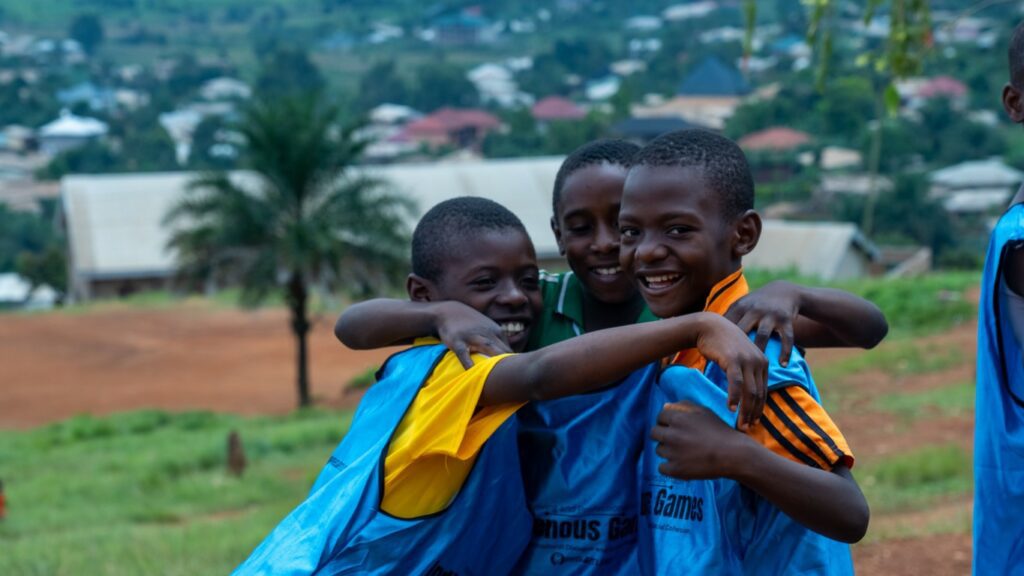

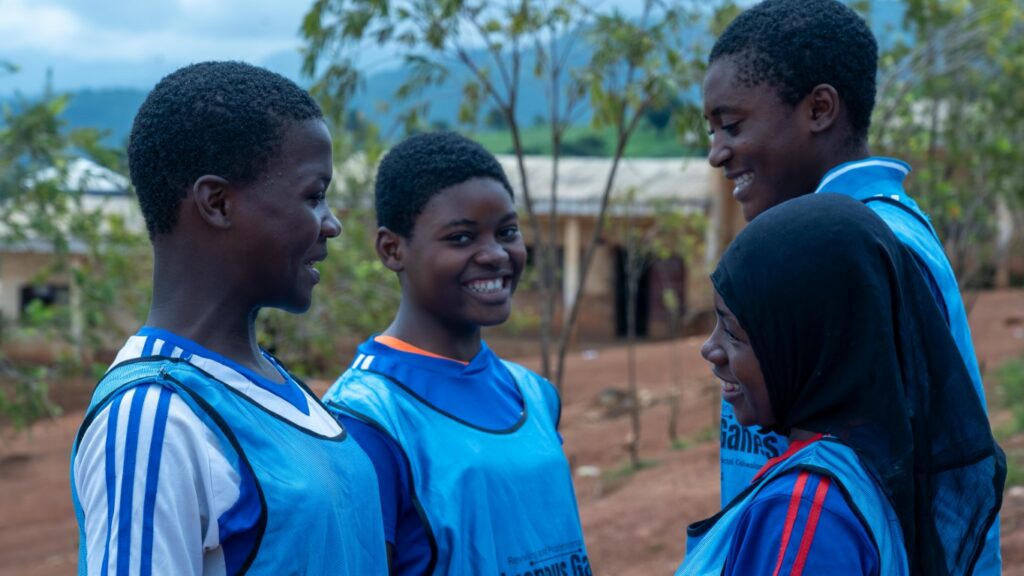

It is now 9: a.m., and the match official is ready. The starting teams are lining up while the other teams are training. The sports ritual of camaraderie and fair play is performed as each team greets the opponents and the officials. The pressure is building up, yet the enabling environment created by RGL staff and the school soothes the anxiety.
“In the end, everyone is a winner in this tournament. I encourage you to respect each other and abide by the binding sportsmanship rule: Fairplay.”
Atigi Samuel, Head of Office REGARTLESS Bamenda Tweet
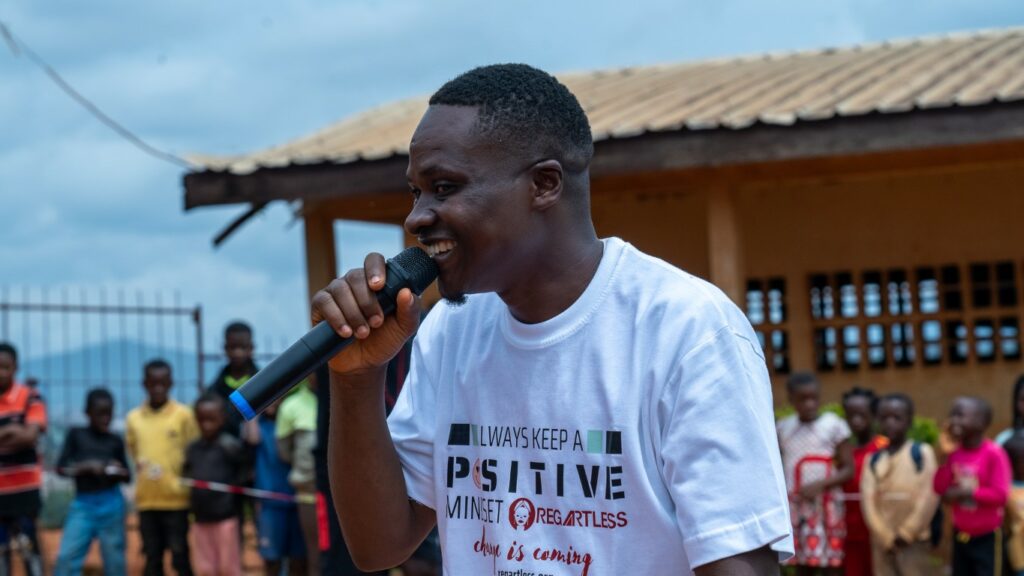

As the teams get head-on each other, fans are cheering them to their best. Games such as dodgeball and jump rope are central to this competition. The players are giving their best, jumping as high as possible and skipping as wide as possible. For these learners, this is an opportunity to win prizes such as books and bags that prepare them for the next academic year and about having fun, connecting, and bonding with friends from different backgrounds.
For the past seven years, the Anglophone regions of Cameroon have been hit by an armed conflict that saw the education system under attack. The armed conflict, which started in 2016 as a peaceful protest, saw over 70% of children remain out of school by 2020. As school gradually resumes in urban areas, the influx of children from rural areas where resumption is timid is at its all-time high. At 17, many children are still in primary, an irregularity influencing the school dropout rate. The indigenous games enable both IDPs and the host community to connect beyond classroom benches.
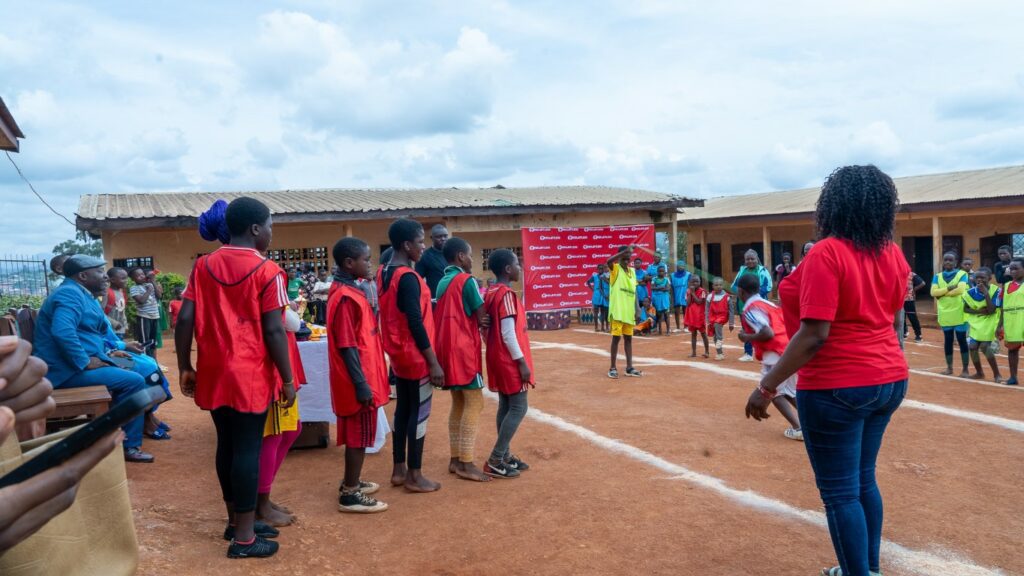

Even though my team did not win, I was happy to see my friend’s team win. We are on thesame team in the next game, and I am so happy about that
Favour, 15 years old learner Tweet
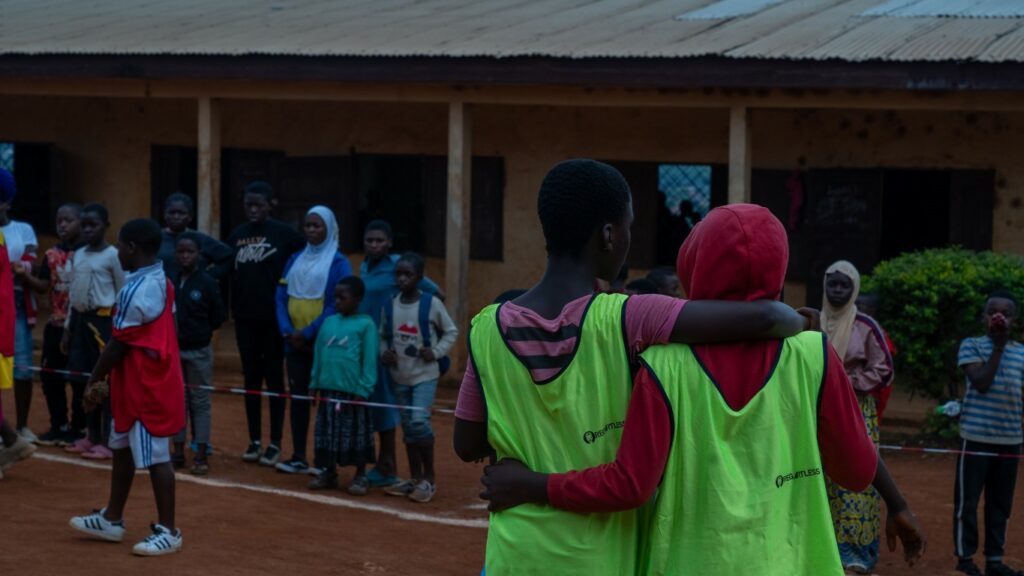

A total of 80 prizes, such as bags and books donated by Unesco, were awarded, while first and second winners earned trophies and medals. By the end of this year’s tournament, learners enhanced their cognitive skills, team work, trust, and were reminded of the importance of their indigneous culture in intercultural dialogues and social cohesion.
Photos from the event
